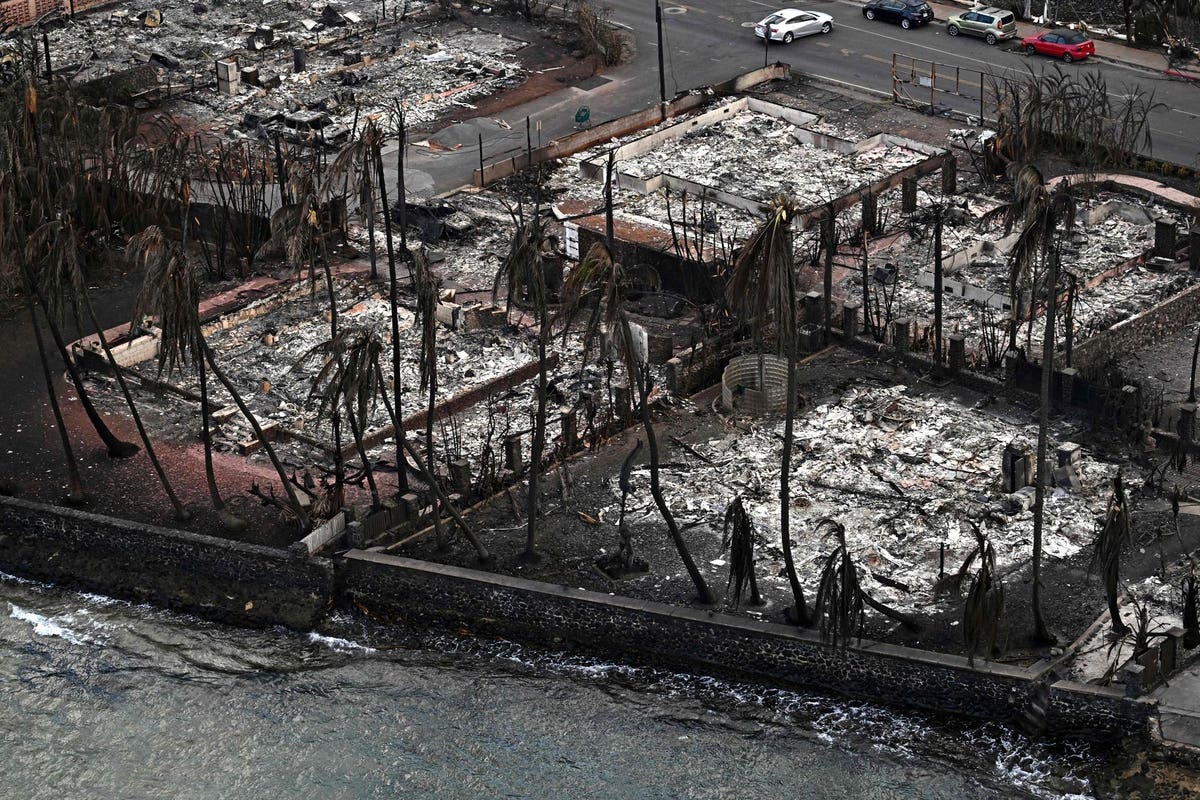Nature-related disasters can create a crisis for companies, organizations, and government agencies. But the more prepared they are for these and other worst-case scenarios, the more likely it is that they will be able to respond when the unthinkable happens.
The deadly and devastating wildfires on Maui are a case in point.
The good news is that President Joe Biden quickly declared the area a major disaster, thus making the resources of the federal government available to respond to the crisis. And the aftermath of the disaster “should be manageable for state and federal emergency management officials,” Clifford Oliver, a retired former FEMA senior official and now the principal at Nanticoke Global Strategies, said via email.
‘Complicating Factors’
The bad news is there are complicating factors that create challenges in helping people and businesses recover as soon as possible.
No Time To Prepare
There was no advance warning that the fires would strike so rapidly and no time to prepare for their impact.
CNN reported that “…the state’s vaunted integrated outdoor siren warning system -the largest in the world, with about 400 alarms—was not activated during the fires, according to Hawaii Emergency Management Agency spokesperson Adam Weintraub.”
“Nobody at the state and nobody at the county attempted to activate those sirens based on our records,” Weintraub said in an interview.
“It was largely a function of how fast the flames were moving,” he said, referring to the failure of emergency management officials to trigger the sirens. “They were trying to coordinate response on the ground, and they had already issued these other alert systems.”
The layers of the emergency warning system that were activated included mobile phone alerts and messages on televisions and radio stations, Weintraub said.
Damaged Infrastructure
Another challenge is the extent of the damage to the local infrastructure and how it will impede response and recovery efforts.
“But I think one of the challenging things is[that]there are structures that are partially standing,” FEMA Director Deanne Criswell told CBS News today. “And so the engineers are embedded with them to evaluate the stability of that structure,” she said.
“FEMA will task the U.S. Army Corps of Engineers and other agencies to assist in first stabilizing and then restoring utilities and other infrastructure.,” Olver predicted. [P]ersonnel are already on the ground assessing needs, including the need for alternate healthcare facilities.”
Hot Spots
Criswell said rescuers are using dogs to help search for survivors. “But it’s hot. The ground still has hot spots. The dogs can only work so long before they need a break.”
“The dogs are the ones that are really making a big difference in helping to identify the location, where then the rest of the rescuers can come in and identify if there are any remains there,” she noted
“ We’re bringing in more teams and more dogs, so we can speed up that process as much as we can,” Criswell explained.
Logistics
The fact that the disaster took place on an island created “logistical challenges in terms of moving people off the island and [transporting] relief supplies to the island,” Oliver noted.
But he thought that “The large military presence in Hawaii will [be] more than sufficient to meet the FEMA and state-led response needs to this event. Airlines are cooperating with federal officials in evacuating off Maui all those [who] wish to leave,” he said.
Lessons for Business Leaders
The unfolding crisis on Maui is providing business executives with some important real-time lessons in preparing for a crisis at their own organizations
Assume Nothing
Do not assume—or hope—that a disaster, scandal, or other emergency will never strike your company or organization.
Have Back-Up Plans
The crisis management plan you have today may not be the right one to address the crisis you could have tomorrow. Prepare contingency plans for different scenarios to help ensure you will not waste valuable time determining how to respond when a different type of crisis strikes,
Implement Early Warning Systems
Pay close attention to clues, signs, or other warnings that your business could be in for a crisis. This includes, for example, monitoring social media channels for anything that could cause or exacerbate a crisis for your organization, paying attention to complaints from employees, etc.
Know What You’ll Need
Don’t find out when it’s too late that you don’t have the skills or resources you‘ll need to respond effectively and immediately to a crisis. Take stock of what you have on hand now—and where you’d get the help you’ll need to compensate for what you’re lacking.
Test, Test, Test
Put your crisis management plans and resources to the test by conducting exercises, drills, and simulations. Based on the results of practice sessions, update your plans and resources as needed.
Read the full article here





